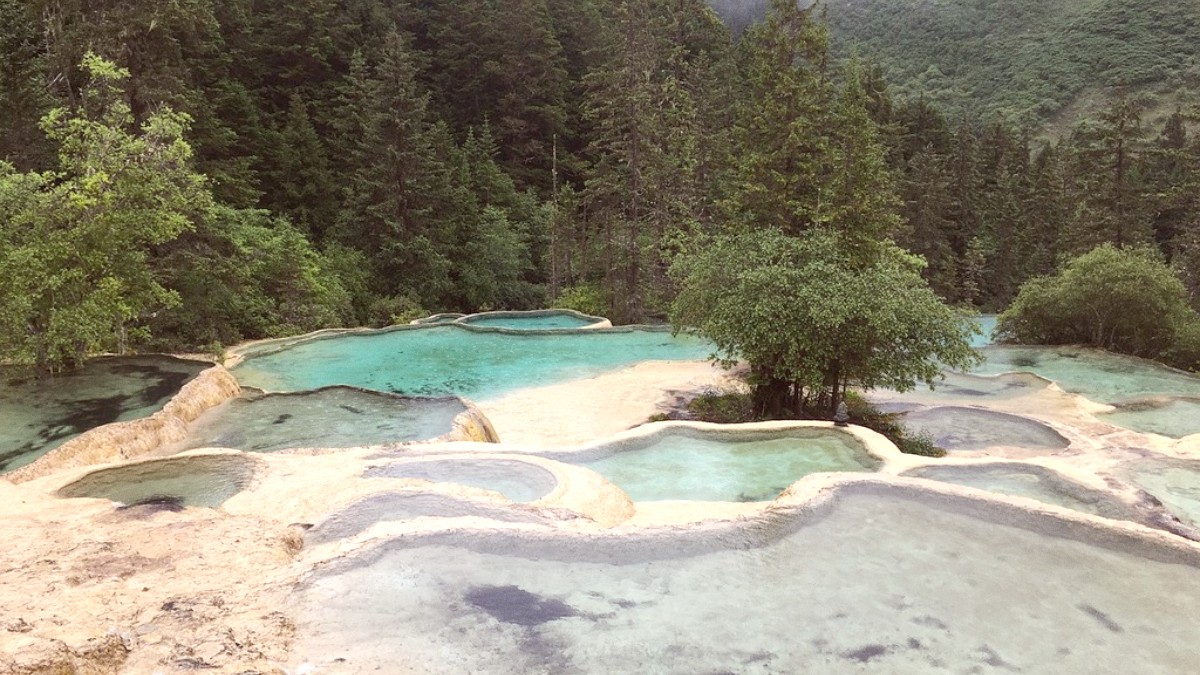
Sichuan, China
Adhering to park guidelines protects the fragile ecosystems and water purity.
Mindful interaction with local Tibetan communities preserves their heritage.
Jiuzhaigou is an UNESCO World Heritage Site and National Nature Reserve. These designations protect its unique features and rare species.
The park maintains a strict "no littering" policy to protect the delicate ecosystem. Dispose of waste properly.
The unique water purity and mineral content are to Jiuzhaigou’s ecosystem. Help preserve it.
When booking your stay, seek hotels that publicly prioritize sustainable practices.
Some tour operators specifically focus on responsible tourism, minimizing environmental impact.
Offset flight emissions through international carbon offset providers like Terrapass.
Learn moreSupport sustainable outdoor gear retailers like Patagonia or reusable product companies like Package Free Shop.
Shop nowCarry a reusable water bottle and refill it. This lessens plastic waste, a major concern in popular tourist areas. Many hotels provide boiled water.
Your respectful interaction with local communities supports cultural preservation efforts.
Efforts preserve traditional Tibetan villages and their distinct cultural heritage within and around the park.
Polite and respectful behavior is appreciated when interacting with local Tibetans.
Always ask for permission before photographing individuals, especially monks, children, or local villagers.
Maintain a quiet and respectful demeanor inside religious sites. Observance of specific customs shows deference.
A few cultural niceties to be aware of during your visit.
Common in small shops and markets, but not in formal stores or restaurants. Engage in friendly negotiation.
Do not leave your chopsticks standing upright in a bowl of rice; this resembles incense at a funeral.
While less common than in the past, you may still see people spitting in public. Try to disregard it.
Chinese people can be quite direct in their communication, not meaning rudeness but straightforwardness. Be prepared for less orderly queuing in crowded areas.
Responsible travel practices mean your visit contributes positively to the local economy and communities.
Directly supporting local communities, especially through accommodation and dining choices, is a positive action.
Make conscious choices for your purchases and services to empower local livelihoods.
Be vigilant about tour operators or individuals promising activities that violate park rules or exploit locals.
If you wish to donate, do so through established and reputable local charities or organizations.
This ensures your contribution reaches those who can best utilize it for community benefit.
Giving money directly to individuals, especially children, can encourage begging and create dependency.
Look for organizations working on education, healthcare, or environmental protection initiatives.
Prioritize activities that align with ethical values and promote long-term community well-being. Report concerns to park authorities.
When booking, choose hotels advertising sustainable practices. Seek out tour operators focused on responsible tourism, like G Adventures, who prioritize local employment and minimal environmental impact.